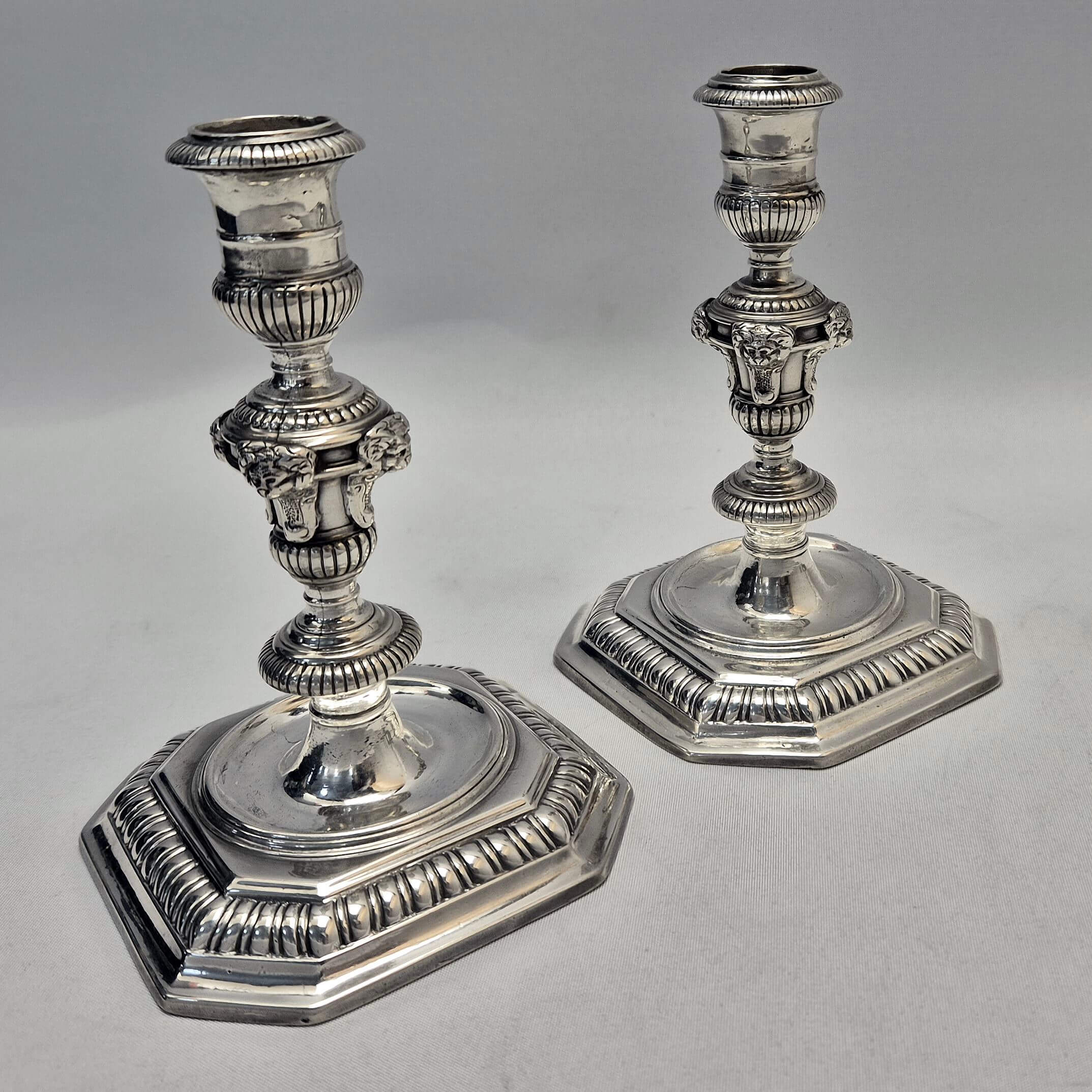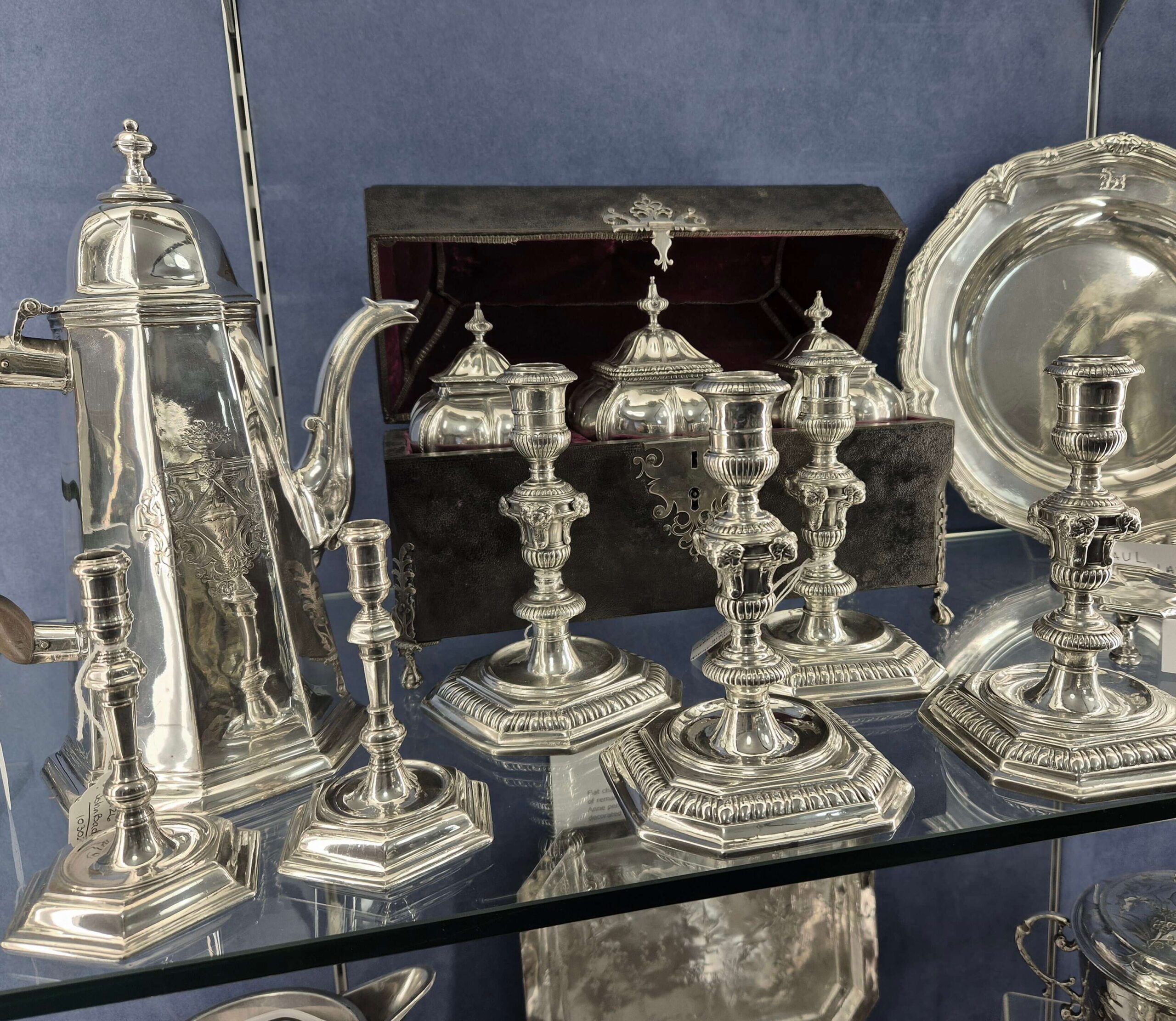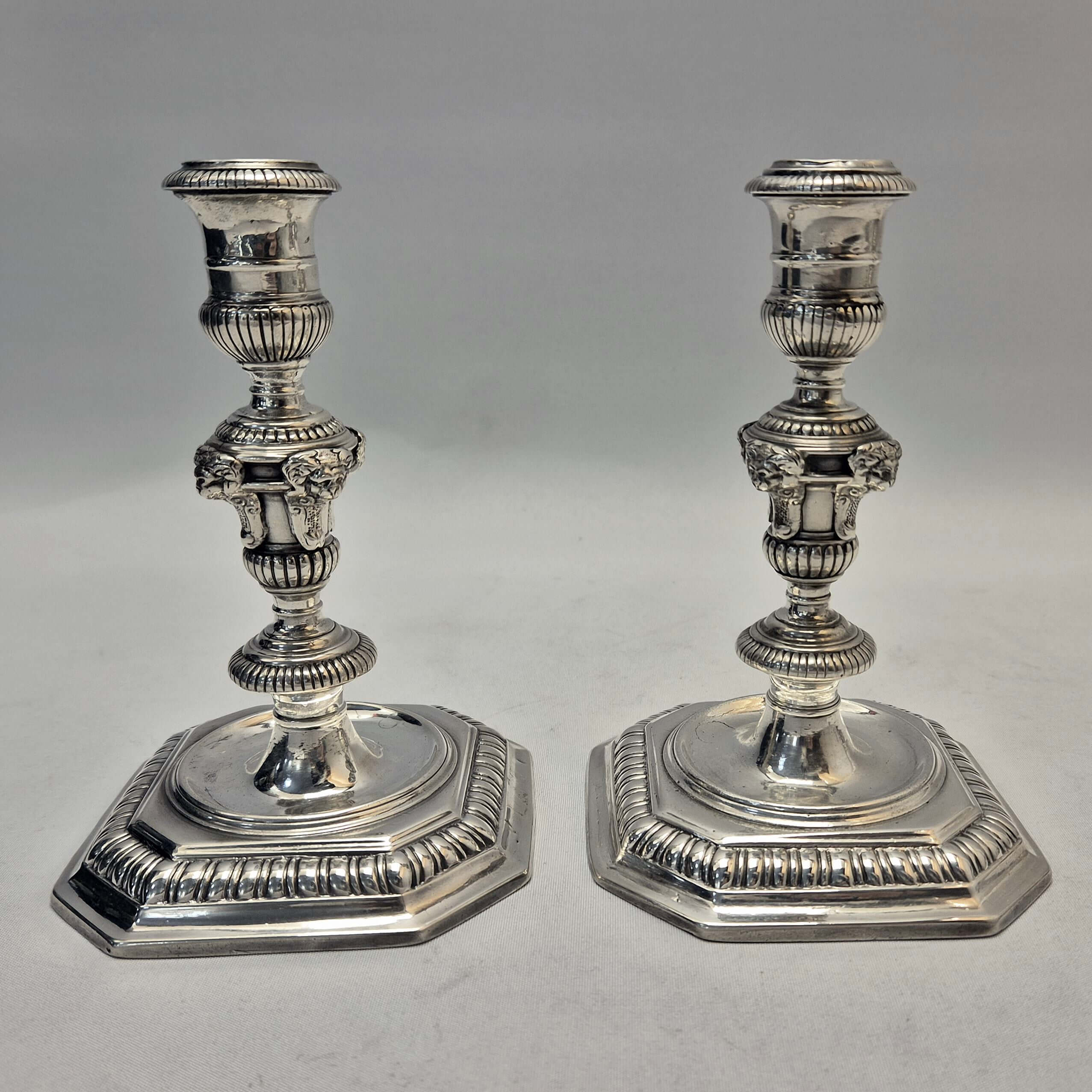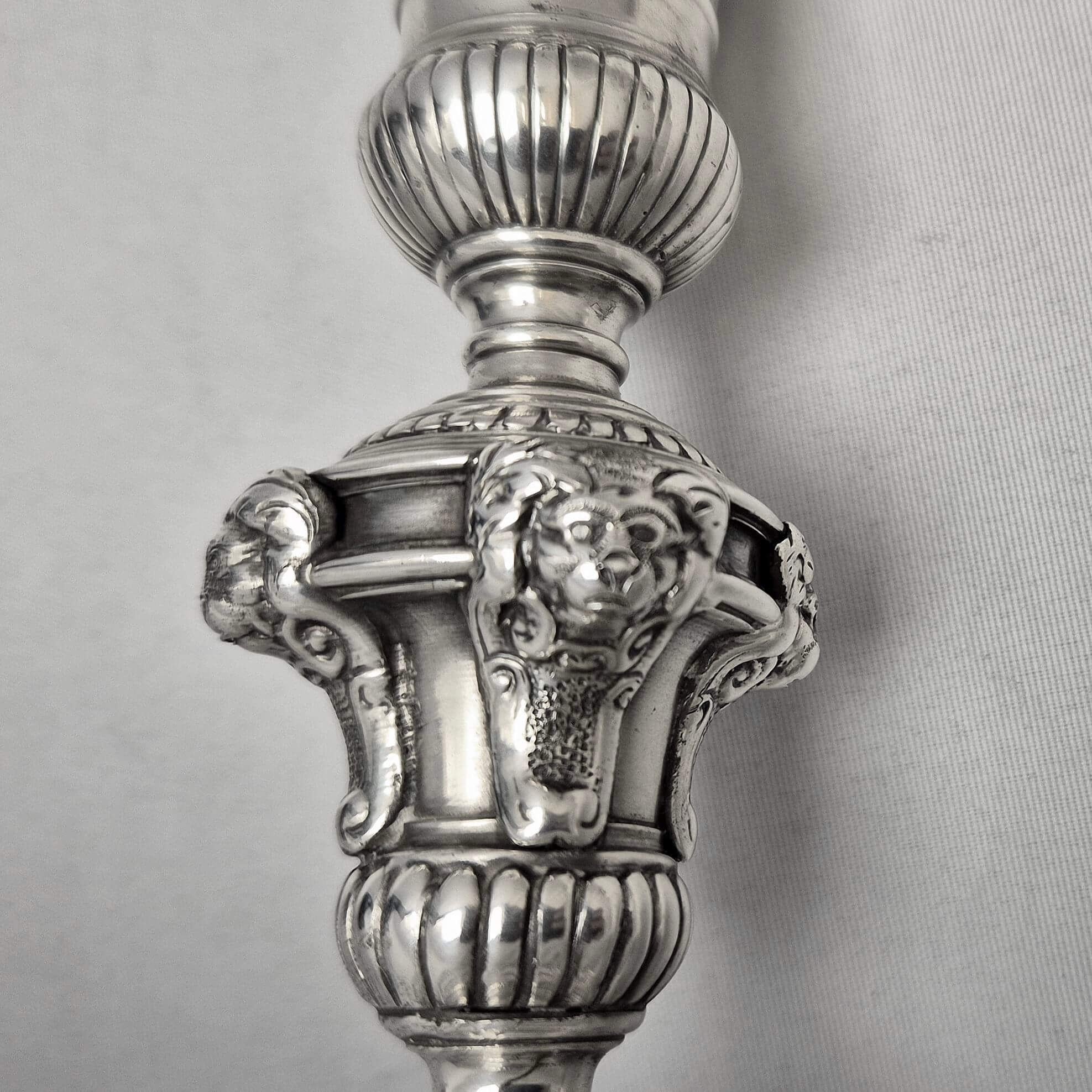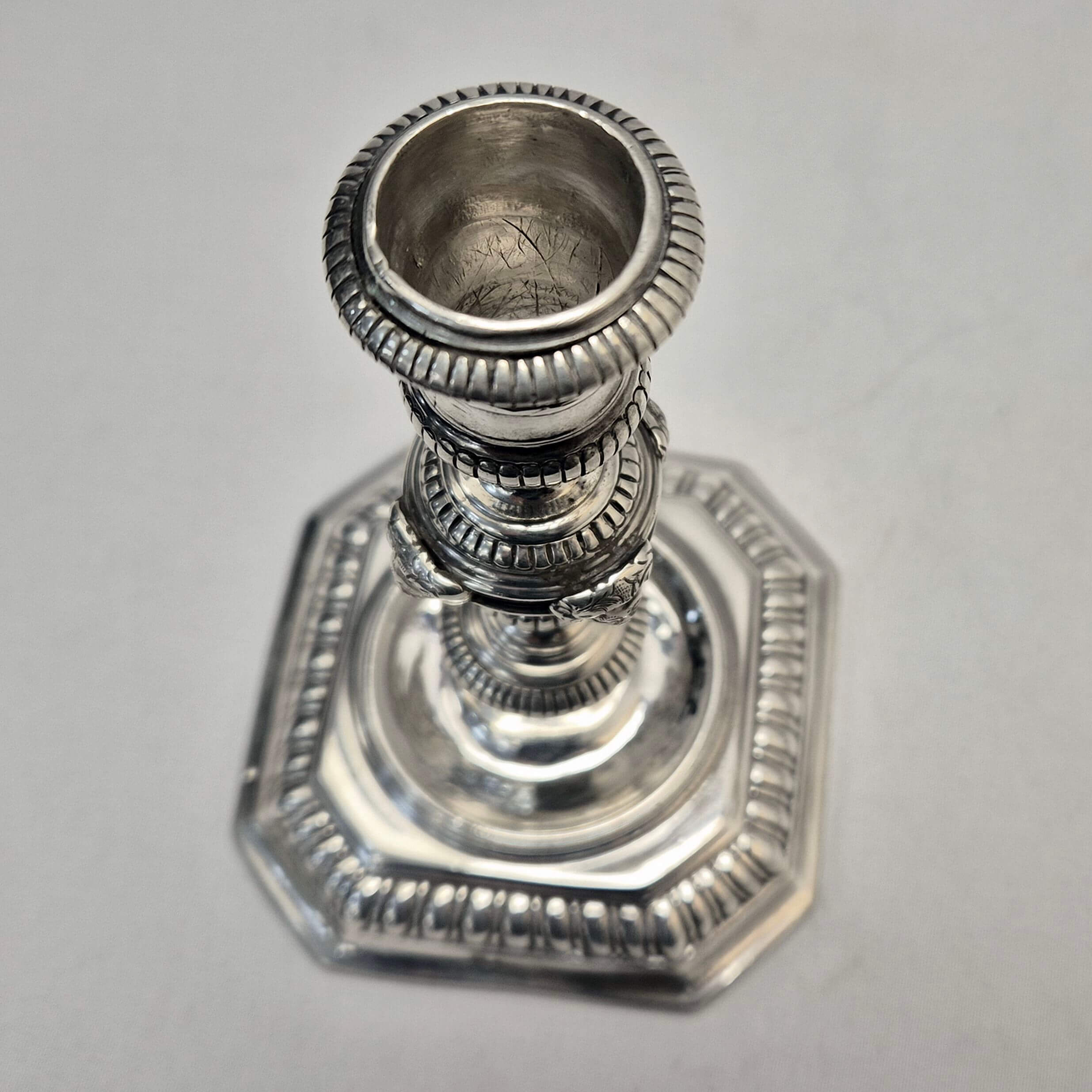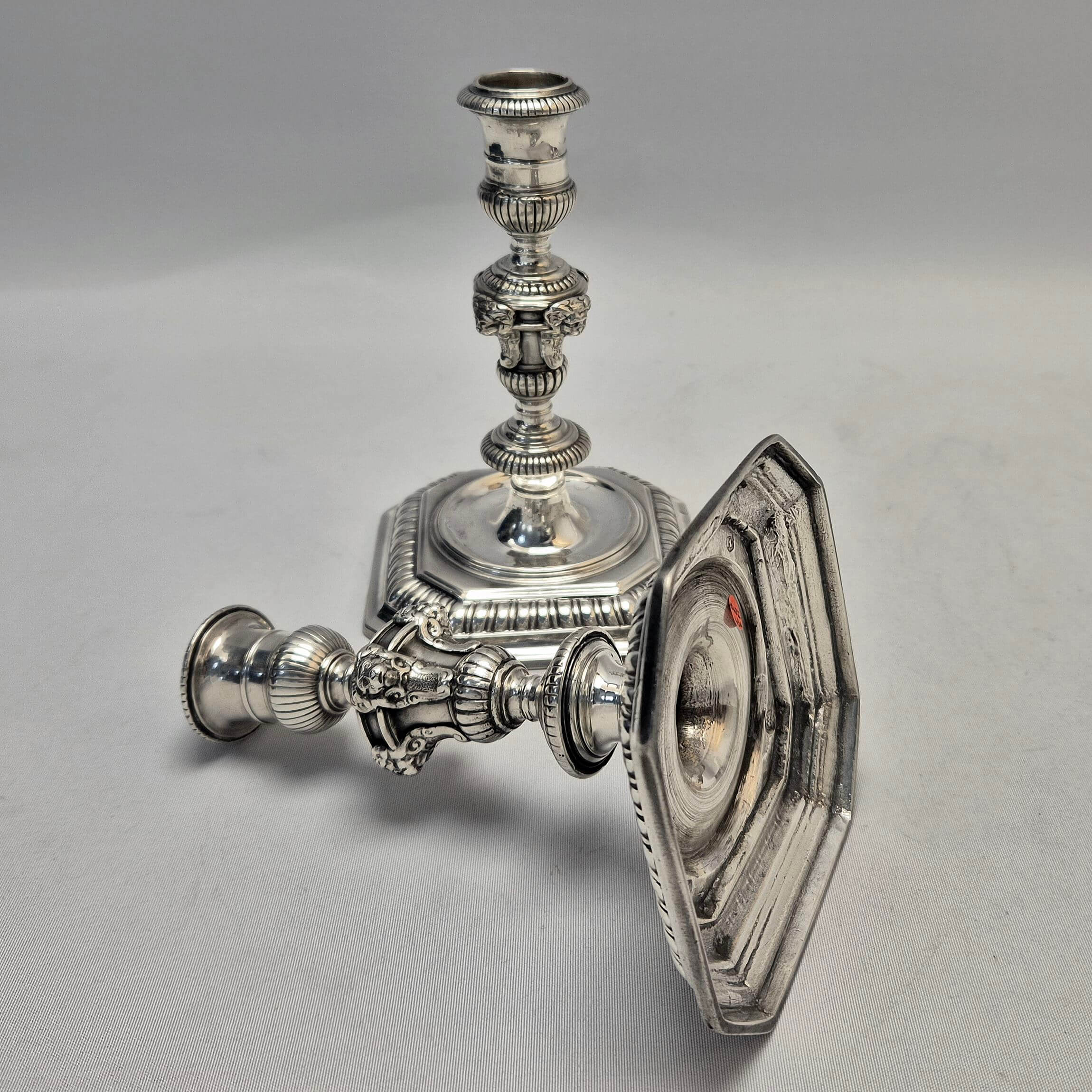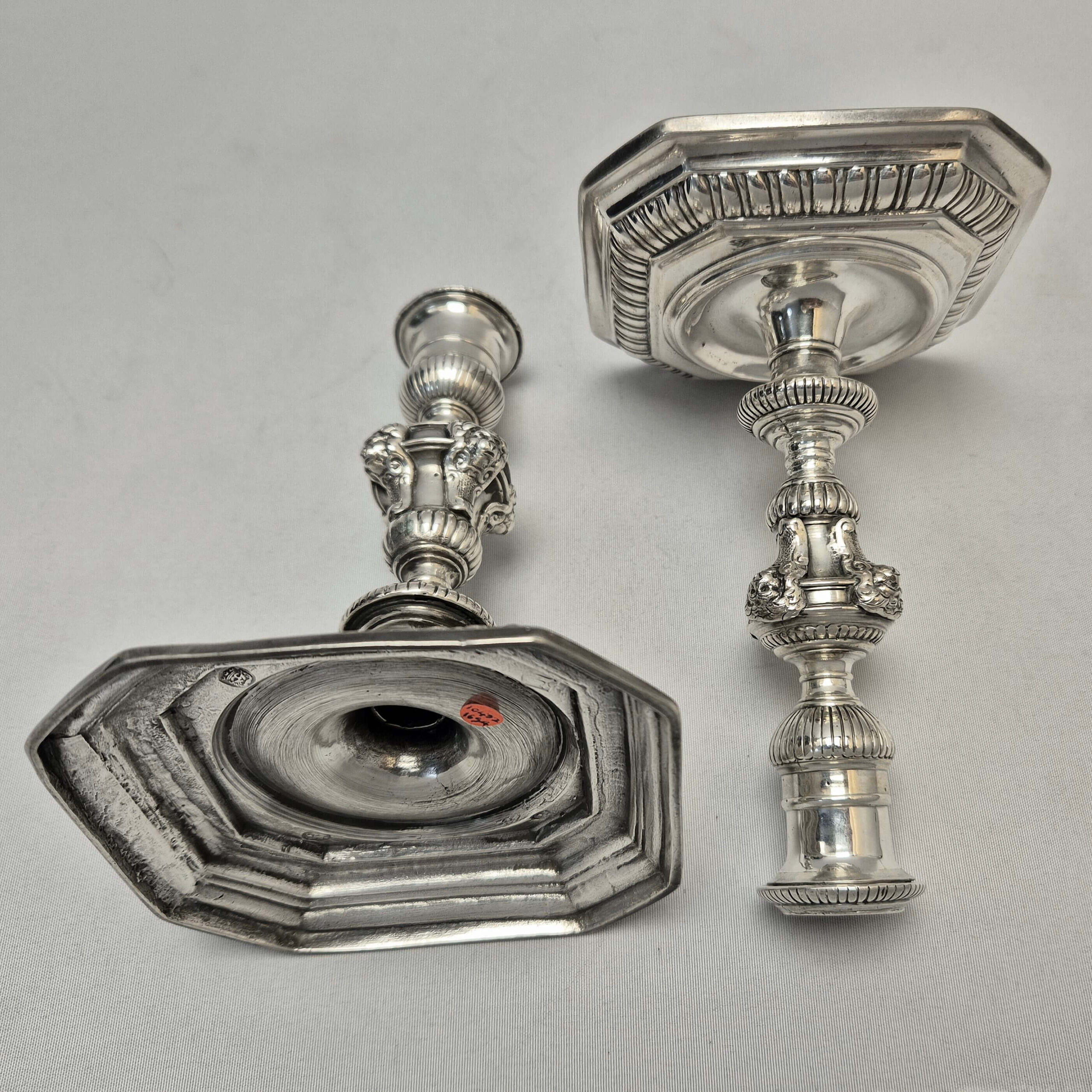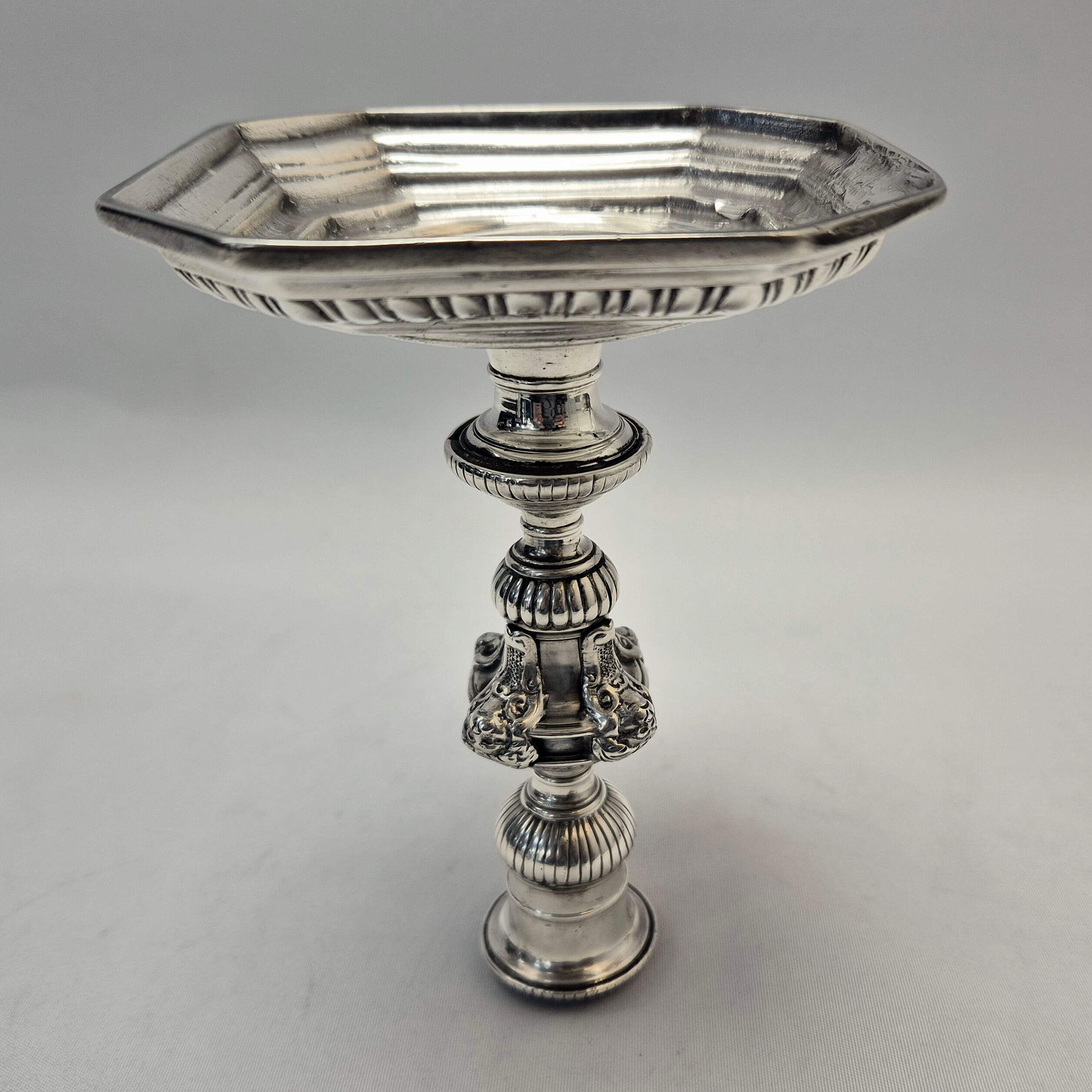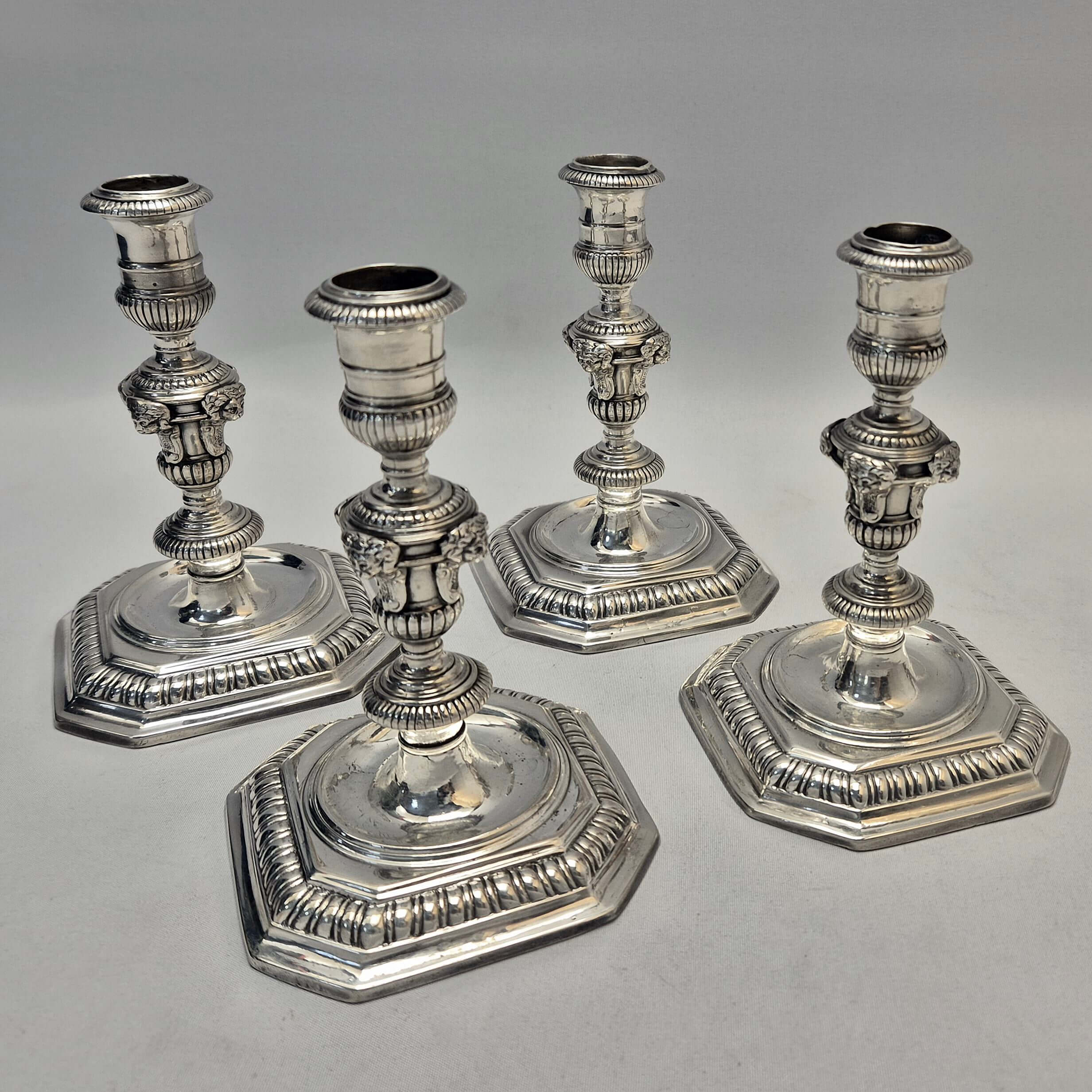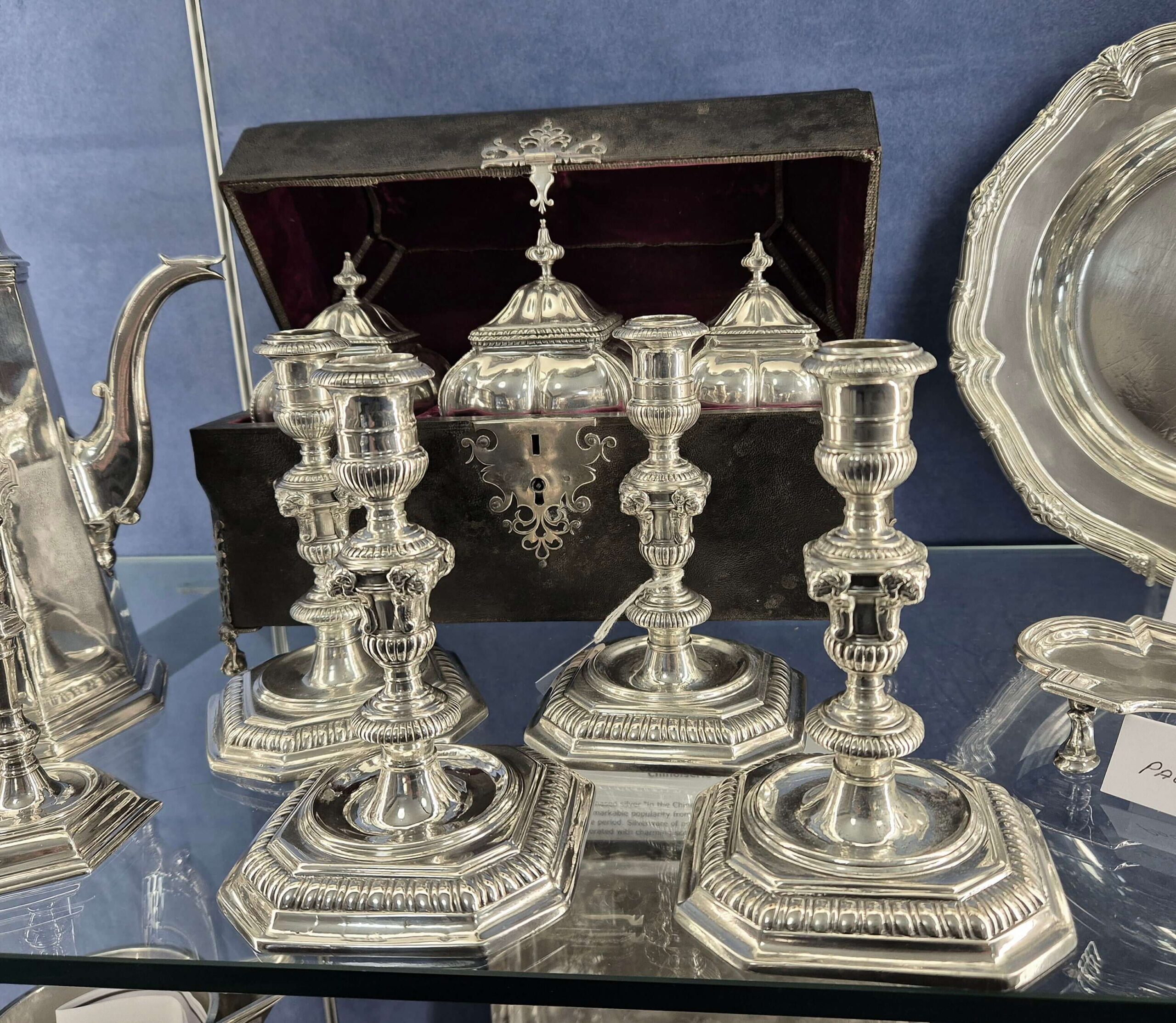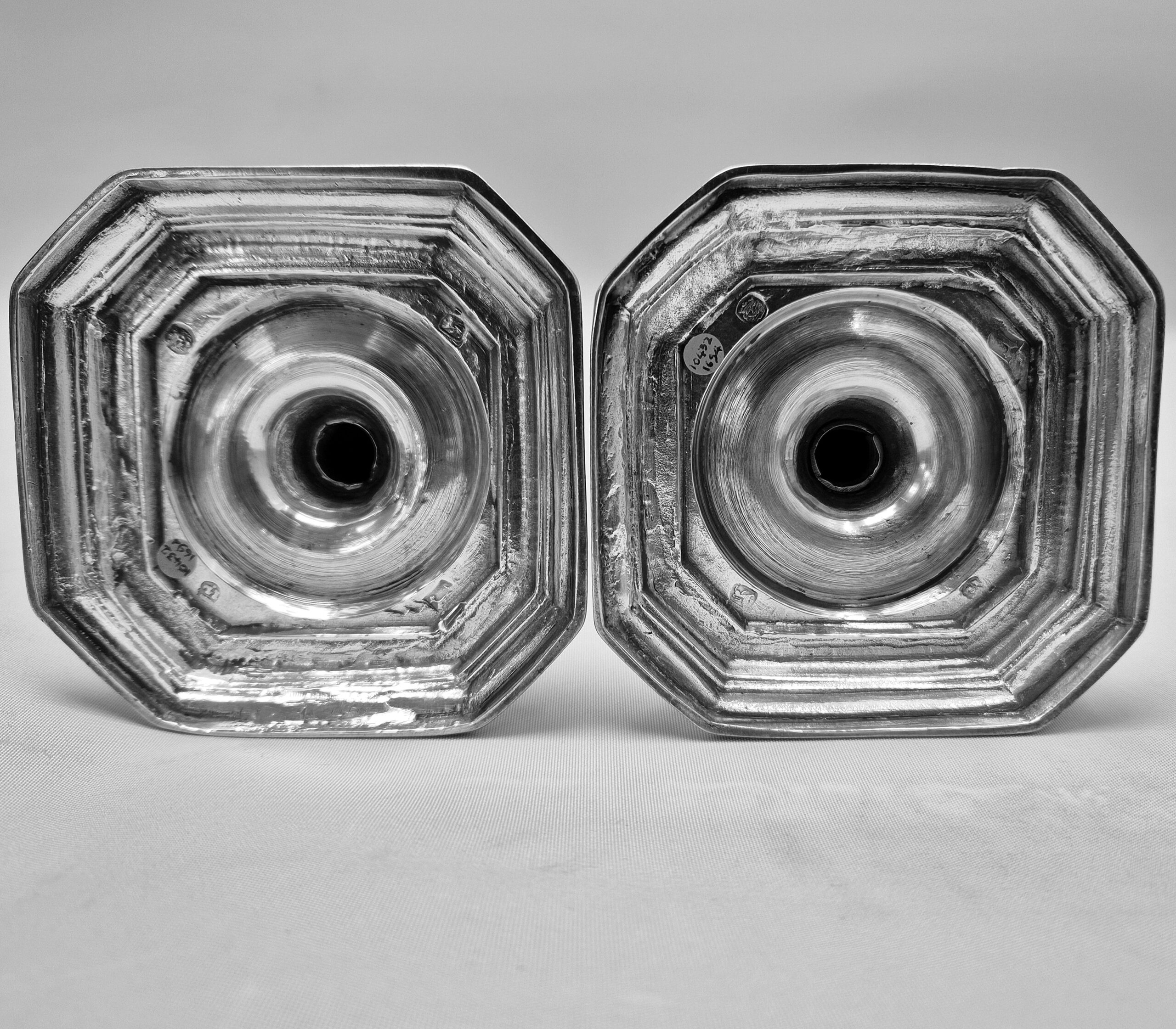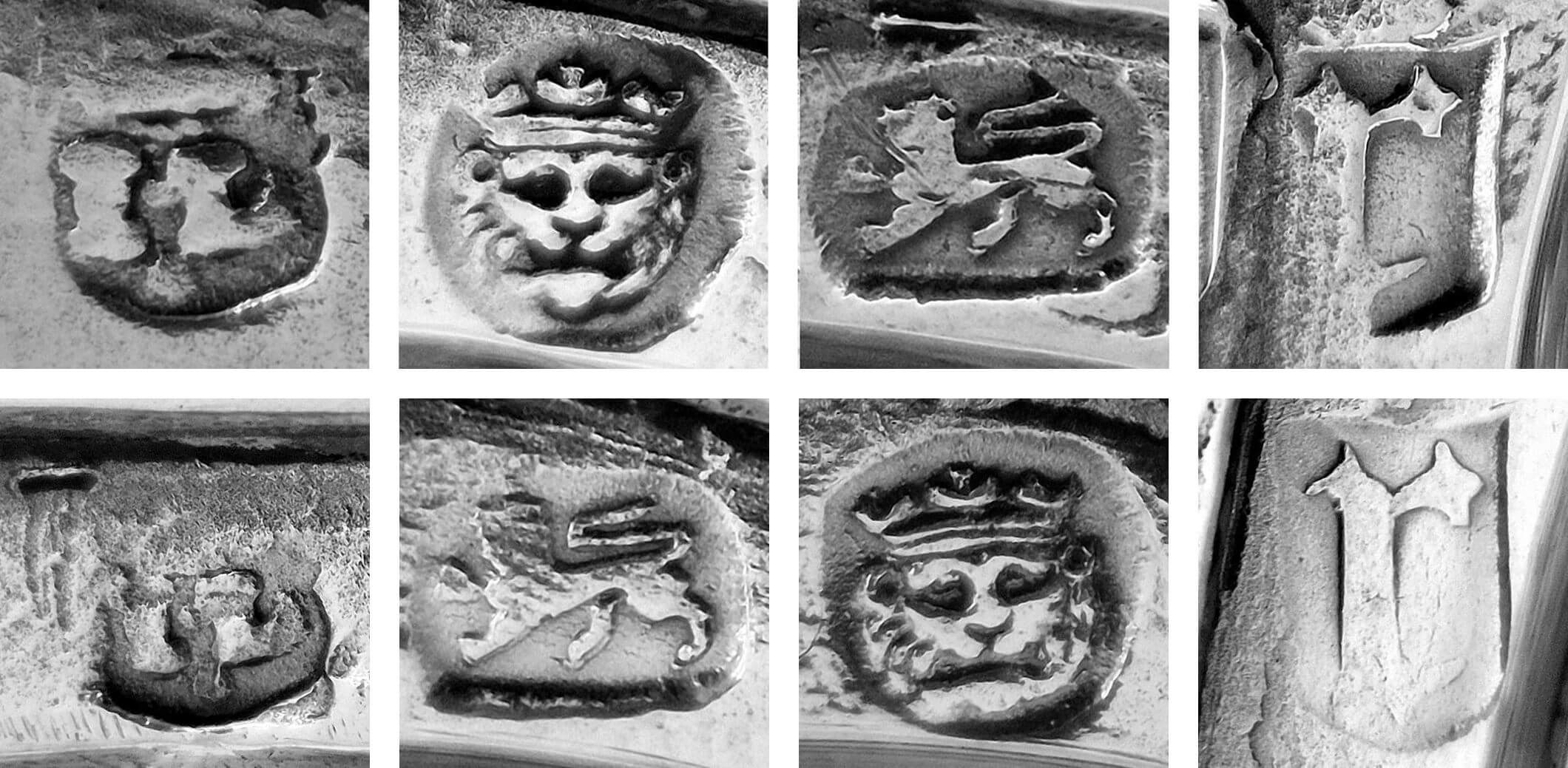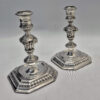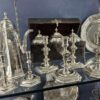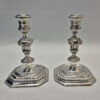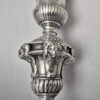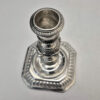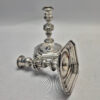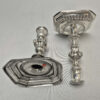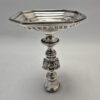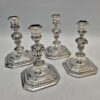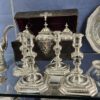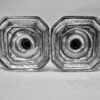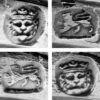William III Antique Silver Candlesticks
£10,750
Stock: 10432
Date: 1694
Maker: John Laughton
Country: England
A superb pair of early English desk candlesticks with square bases and lobed, gadroon decoration. The applied lion masks are...
Buy NowEnquireEnquire
×Description
Description
A superb pair of early English desk candlesticks with square bases and lobed, gadroon decoration. The applied lion masks are extremely charming. The technique of making cast silver sticks was introduced into England circa 1685 and this is one of the early designs. Excellent quality and heavy gauge of silver.
Total weight 750g, 24.1 troy oz.
Height 15.5cm. Base 10.7cm.
London 1694.
Maker John Laughton.
Sterling silver.
17th century.
These sticks make a set of four with the #10433 candlesticks dated 1695, one year later.
Marks. Stamped underneath in the corners with a full set of English silver hallmarks. The maker’s mark “I.L” is poorly stamped but if you look carefully you can make out the crown above. This mark is recorded as unidentified in Jackson’s “Silver and Gold Marks” Ian Pickford edition page 135. An identical pair of candlesticks were sold in Christie’s auction stamped with John Laughton’s Britannia mark “LA” registered in 1697 and it is highly probable that “IL crowned” refers to the previous Sterling mark for John Laughton I”.
Literature. Few domestic antique silver candlesticks still exist before the reign of Charles II and 17th century examples are usually made from sheet silver and are light in weight.
Cast silver candlesticks were first made in London during the 1680’s, the same time as the influx of Huguenot refugees fleeing French persecution. The Huguenots brought with them the superior techniques of modelling and casting needed to supply the new types of silverware in the fashionable “French” style. During that period a large quantity of Huguenot silverwares was stamped with English maker’s marks as the newly arrived foreign silversmiths took whatever work was offered, often as outworkers at very low rates of pay. It’s also possible that a Huguenot workshop was operating in London during this period supplying candlestick parts such as bases, stem sections and sockets for English workshops to assemble. Because of this it can be difficult to know from the maker’s mark whether a piece of silver from this period was made by an English or Huguenot worker and one needs to also look at the style and technique.
Although many early candlesticks had fixed nozzles the first cast candlesticks were made without these useful drip pans. During the period c.1735-50 candlesticks with detachable nozzles appeared which facilitated much easier cleaning.
Condition
Both sticks are in very good condition with a small amount of wear compatible with age. Excellent patina. Minor scratches visible and a small amount of pitting remaining from the casting process.
Maker Information
Maker: John Laughton
The first mention of the Laughton family of silversmiths is a reference to Benjamin Page, free of the Grocers Company in 1660 after service to John Laughton (senior). His son John Laughton I became free of the Grocers' Company by patrimony. He is recorded as working on Maiden Lane from 1694 however his first mark was likely to have been the Sterling mark, “IL crowned” dated 1678, recorded in Jackson’s “Silver and Gold Marks” Ian Pickford edition page 135. His New Standard mark undated was presumably entered in 1697 on commencement of the new register. John seems to have specialised in making superb quality cast candlesticks of a particular style and technique associated with Huguenot workers during this period. His wife Ann entered her widow’s mark in 1701. John Laughton II, son of John Laughton I and brother of Edward, free of the Grocer’s Company by patrimony. Mark entered as largeworker in 1699. Died in 1703 and his wife Mary, no record of apprenticeship or freedom, entered her own mark in 1704. Edward Laughton, son of John Laughton I and brother of John Laughton II, free of the Grocer’s Company by patrimony 1675. His first recorded mark undated was presumably entered in 1697 on commencement of the new register. Possible other family members mentioned by Grimwade are Charles Laughton I and Charles Laughton II, both free by patrimony of the Grocer’s Company 1685 and c.1738.
Our Guarantee
Customer satisfaction is our primary concern
All silverware on our website is checked thoroughly prior to offering it for sale and every product listing contains a condition report and details of the silver hallmarks.
All items offered on our website include:
- Free Shipping Worldwide
- Tracked and Insured
- 14 day no quibble money back guarantee
- We are accredited members of LAPADA and conform to their strict professional standards
- We dispatch 1-3 days after receiving cleared payments
More detailed information about deliveries, returns and how to pay is available in the Help section at the bottom of this page.
